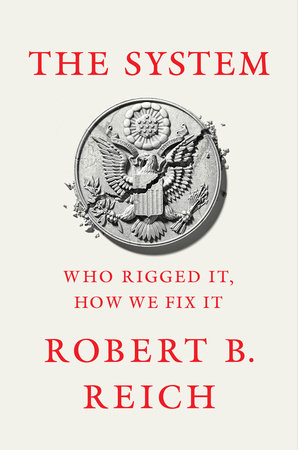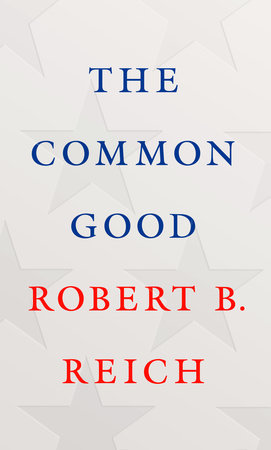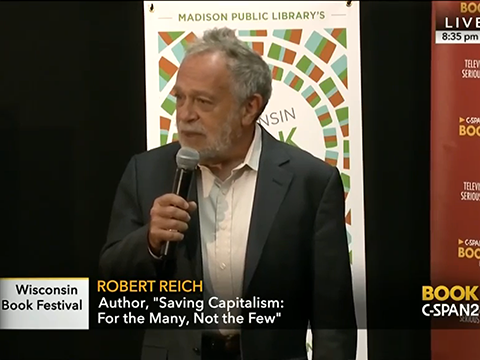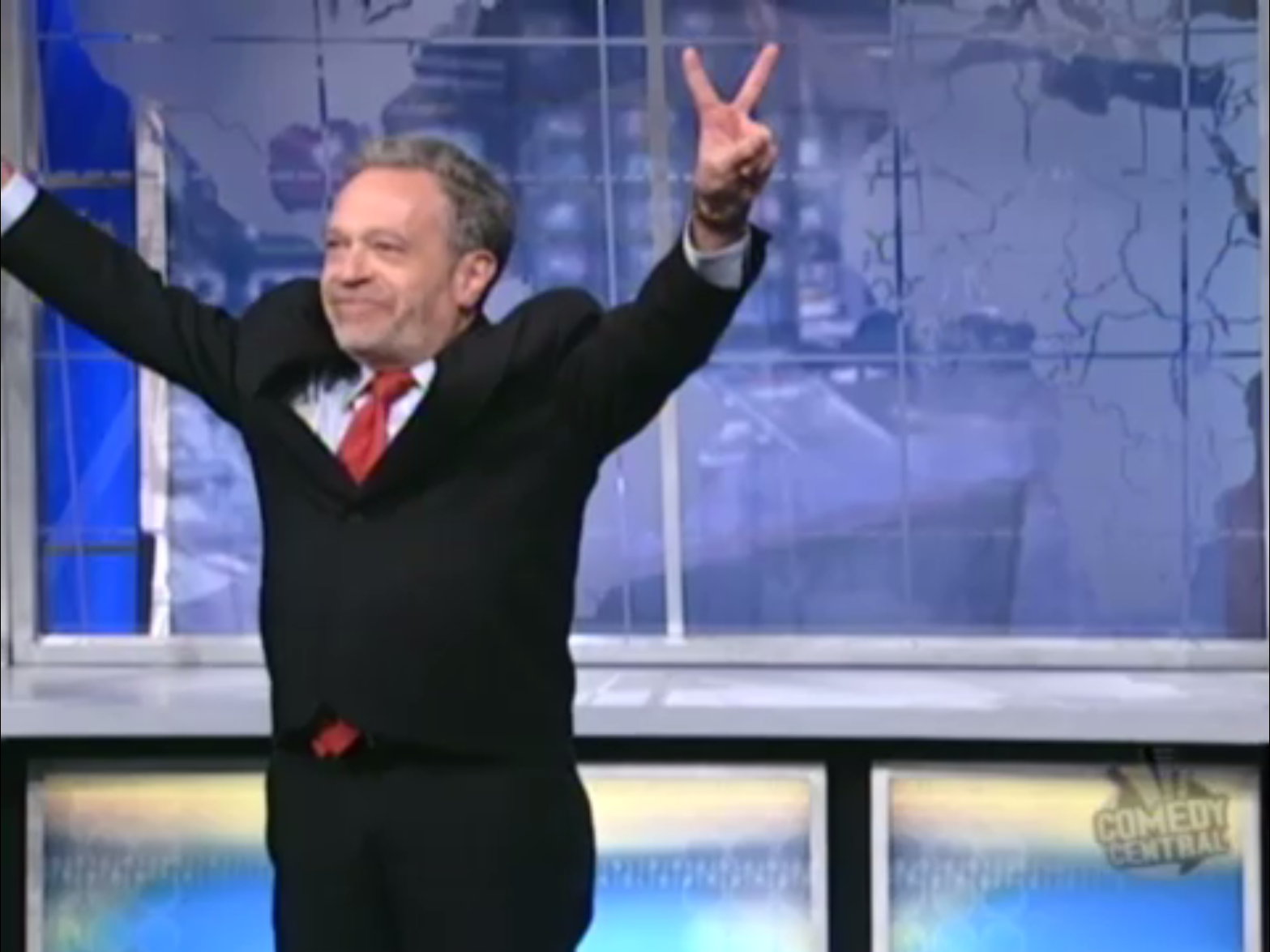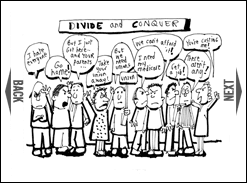 Robert Reich's writes at robertreich.substack.com. His latest book is "THE SYSTEM: Who Rigged It, How To Fix It." He is Chancellor's Professor of Public Policy at the University of California at Berkeley and Senior Fellow at the Blum Center. He served as Secretary of Labor in the Clinton administration, for which Time Magazine named him one of the 10 most effective cabinet secretaries of the twentieth century. He has written 17 other books, including the best sellers "Aftershock,""The Work of Nations," "Beyond Outrage," and "The Common Good." He is a founding editor of the American Prospect magazine, founder of Inequality Media, a member of the American Academy of Arts and Sciences, and co-creator of the award-winning documentaries "Inequality For All," streaming on YouTube, and "Saving Capitalism," now streaming on Netflix.
Robert Reich's writes at robertreich.substack.com. His latest book is "THE SYSTEM: Who Rigged It, How To Fix It." He is Chancellor's Professor of Public Policy at the University of California at Berkeley and Senior Fellow at the Blum Center. He served as Secretary of Labor in the Clinton administration, for which Time Magazine named him one of the 10 most effective cabinet secretaries of the twentieth century. He has written 17 other books, including the best sellers "Aftershock,""The Work of Nations," "Beyond Outrage," and "The Common Good." He is a founding editor of the American Prospect magazine, founder of Inequality Media, a member of the American Academy of Arts and Sciences, and co-creator of the award-winning documentaries "Inequality For All," streaming on YouTube, and "Saving Capitalism," now streaming on Netflix.
+ MY LINKTREE + SUPPORT INEQUALITY MEDIA
+ FOLLOW ON TUMBLR + TWITTER + FACEBOOK
NEW: The System
Who Rigged It, and How We Fix It
Order here:
AmazoniBookstoreBN.comIndieBoundRandomHouseThe Common Good
Why we must restore the idea of the common good to the center of our economics and politics
Order here:
AmazoniBookstoreBN.comIndieBound
Economics in Wonderland
A cartoon guide to a political world gone mad and mean
-

Saving Capitalism
For the Many, Not the Few
Order here:
AmazoniBookstoreBN.comIndieboundRandomHouse 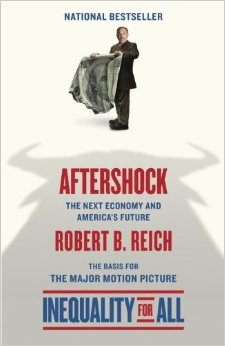
Aftershock
The Next Economy and America's Future
Buy this book at:
AmazoniBookstoreBN.comIndieboundPowellsRandomHouse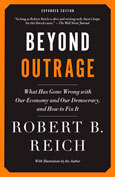
New Editions Available Now
Beyond Outrage:
What has gone wrong with our economy and our democracy, and how to fix itPreorder the Trade Paperback:
BN.comIndieBoundAmazonRandomHouse
Preorder the Expanded eBook:
AmazoniBookstoreBN.comRandomHouse
Preorder the Expanded, Enhanced eBook (w/ videos):
AmazoniBookstoreBN.com
Supercapitalism
The Transformation of Business, Democracy, and Everyday Life
Buy this book at:
AmazoniBookstoreBN.comIndieboundPowellsRandomHouse
Reason
Why Liberals Will Win the Battle for America
Buy this book at:
AmazoniBookstoreBN.comIndieboundPowellsRandomHouse
Locked in the Cabinet
A memoir of four years as Secretary of Labor
Buy this book at:
AmazonBN.comPowellsIndieboundRandomHouse
The Unchecked Power of Police Unions
Police unions abuse collective bargaining to shield their members from accountability for the killings of unarmed Black people and other heinous misconduct. No progress can be made without reining in the unchecked power of police unions.
Look, I was Secretary of Labor. I’m in favor of unions. But police unionizing can have deadly consequences.
One study found that extending collective bargaining rights to Florida sheriffs’ offices led to an estimated 40 percent increase in violent police misconduct.
Another study found that the protections built into the police union contracts in America’s 100 largest cities were significantly correlated with the killing of unarmed civilians.
Another study suggests that the increase in police unionization from the 1950s through the 1980s resulted in “about 60 to 70” additional civilians killed by police each year — the majority of whom were people of color.
Experts believe the protections in police union contracts give too many officers the sense they can abuse their power.
Police contracts often have provisions allowing departments to erase disciplinary records within a few years, enabling officers with histories of misconduct to clear their records.
Others allow accused officers to access their investigative files before being questioned, letting them manipulate their story. Others set strict time limits for citizens to file complaints about officers; some prevent anonymous complaints from being investigated at all.
All these provisions allow officers with histories of misconduct to stay on the force.
Derek Chauvin, for instance, had at least 17 complaints lodged against him, and never faced any discipline beyond two letters of reprimand. Needless to say, other public sector employees are not afforded these extraordinary protections.
Even if an officer is fired, there’s an extensive appeals process that usually works out in their favor.
In Philadelphia, 62 percent of officers fired from 2006 to 2017 were reinstated. In San Antonio, 70 percent were. When New York police officer Daniel Pantaleo was finally fired, five years after choking Eric Garner to death, the NYPD’s largest union responded by threatening a work slowdown.
Police unions fight cities that enact even mild reforms, like establishing civilian review boards. The result? Review boards are notoriously ineffective by design.
Some police union contracts with cities forbid them even creating a review board. In the tragic case of Breonna Taylor, Louisville’s review board could not start an investigation, take complaints from citizens, or recommend discipline for the officers. All it could do was make recommendations for policy or training changes.
It’s the same in other cities: oversight boards have no investigative power, no subpoena power, and no discipline power.
Police unions also wield enormous political clout. A Guardian investigation found police unions spent about $87 million influencing state and local legislation over the past two decades, and at least $47.3 million on campaign contributions and lobbying at the federal level. In 2017, police unions spent $2 million to influence legislation in California alone.
Now, don’t get me wrong. Stopping the abuses of police unions must not become a stalking horse for attacking public sector unions generally. But the unchecked powers of police unions urgently need to be addressed.
To start, lawmakers must change state labor laws to restrict the subjects police unions can bargain over.
They should limit negotiations to pay and benefits, not how police do their jobs, how and when they use force, and how and when they are disciplined.
For decades, police unions have shielded officers from accountability, bullied cities into doing their bidding, and attacked lawmakers who took them on. It’s past time to ensure they can no longer block accountability under the guise of collective bargaining.
